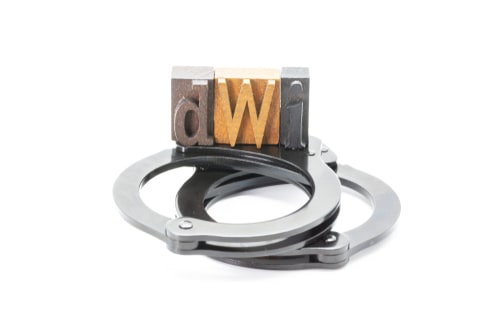If you’ve ever heard someone mention a DWI and found yourself wondering, “what does DWI mean?”, you’re not alone. It’s one of those legal terms that gets thrown around on TV shows, news reports, and courtroom dramas—but rarely explained. DWI stands for Driving While Intoxicated, but understanding what it really means, how it differs from similar charges, and what kind of consequences it can bring is a whole different story.
In this article, we’re going to unpack what a DWI truly involves. We’ll dive into how law enforcement defines it, how courts treat it, and how it can affect your life in ways you may not expect. You’ll also hear about real people who’ve faced these charges and what happened next—because the best way to grasp the reality of a DWI is to see it through the lives it touches.
Whether you’re facing a DWI charge, trying to help someone else, or simply want to stay informed, this guide gives you a full, no-nonsense breakdown of what DWI means—legally, practically, and personally.
Understanding the Legal Definition
To begin, let’s address the question: what does a DWI charge involve in legal terms? In most states—especially in Texas—this offense means operating a vehicle while under the influence of alcohol, drugs, or a combination of both. While the charge often gets confused with DUI, the terminology and consequences can differ depending on where you are.
In Texas, DWI is the more commonly used—and more serious—charge for adults caught driving with a BAC (Blood Alcohol Content) of 0.08% or higher. But here’s the kicker: you can still be arrested even with a BAC under that threshold if you’re showing signs of impairment.
The legal focus is on your ability to operate a vehicle safely. If an officer observes impaired behavior behind the wheel—slurred speech, poor coordination, delayed responses—you may still face arrest.

How Is DWI Different from DUI?
People often ask if DWI and DUI are just two names for the same offense. They’re not. While some states use the terms interchangeably, others make a clear distinction.
In Texas:
- DWI refers to Driving While Intoxicated, typically for adults impaired by alcohol or drugs.
- DUI (Driving Under the Influence) is usually reserved for minors under 21 who are found with any detectable alcohol in their system.
So, if an 18-year-old has just a sip of alcohol and gets behind the wheel, they could be charged with DUI—even if they’re not legally drunk. Meanwhile, an adult with a BAC of 0.10% would likely face a DWI charge. The distinction matters when it comes to penalties and long-term consequences.

Real-World Example: One Beer, Big Problem
Let’s look at Kevin, a 22-year-old college student in Denton, Texas. After a single beer at dinner, he got pulled over for a broken taillight. The officer smelled alcohol and asked him to step out for field sobriety tests.
Kevin complied. He passed most of the tests, but stumbled slightly during the “one-leg stand.” He blew a 0.07%—below the legal limit—but still ended up arrested for DWI. Why? Because the officer believed he was impaired and unfit to drive safely. His case shows how a DWI doesn’t require falling-down drunkenness—just evidence of impairment.
Legal Elements of a DWI Charge
To understand what does DWI mean from a legal perspective, it helps to know what prosecutors must prove in court. Generally, these are the key components of a DWI charge:
- Operation of a Vehicle – You must have been driving or in control of a vehicle (in some cases, even parked).
- Public Roadway – Most DWI arrests occur on public roads, but private property isn’t always safe ground.
- Intoxication – Either a BAC of 0.08% or proof that you were physically or mentally impaired.
A skilled DWI attorney can challenge any of these points—especially intoxication, which can be argued based on poor testing procedures or health conditions.
What Happens After a DWI Arrest?
If you’re still wondering what does DWI mean, this is where the consequences come into play. A DWI arrest kicks off a chain of events that can be expensive, stressful, and time-consuming.

1. Arrest and Booking
You’ll be handcuffed, read your rights, and taken to the station for fingerprinting and a mugshot. Your car might be towed, and you’ll likely spend the night in jail unless you post bond.
2. Administrative License Suspension (ALR)
In Texas, you have 15 days from the date of arrest to request a hearing to stop the automatic suspension of your driver’s license. This is separate from the criminal process and happens fast.
3. Court Proceedings
You’ll attend an arraignment, followed by pretrial hearings and possibly a trial. The court may order conditions like attending Alcohol Education Programs or installing an ignition interlock device on your car.
4. Long-Term Penalties
Even if you avoid jail, a conviction can still bring:
- Fines (up to $2,000 for first offense)
- Jail time (3 to 180 days)
- License suspension
- Higher insurance rates
- A permanent criminal record
If you were asking what does DWI mean, now you see—it means long-lasting consequences.
DWI and Drug Use: It’s Not Just Alcohol
It’s a mistake to think DWI only applies to drunk driving. Prescription medications, marijuana (even with a card), and illegal drugs can all lead to a DWI if they impair your ability to drive safely.
Let’s say you’re taking a legally prescribed anxiety medication. If it causes drowsiness or delayed reaction time and you get pulled over, you could still be arrested for DWI. The law looks at impairment, not just whether the substance is legal.
Example: Prescription Trouble
Jenna, a 48-year-old mom in Midlothian, took her prescribed painkillers after dental surgery. She ran to the grocery store but swerved once on the road. A cop pulled her over. She was cooperative, but clearly dazed. A blood test showed only her prescription, yet she was charged with DWI. Her case was a wake-up call—not all DWIs involve drinking.
What Does DWI Mean for First-Time Offenders?
Many people assume that a first DWI is no big deal. Not true. Even a first-time conviction carries serious penalties and lasting consequences.
- Jail: Up to 180 days (even if only served on weekends)
- Fines: Up to $2,000 plus court costs
- License Suspension: Up to one year
- Annual Surcharges: Up to $2,000 for three years
- Probation: Includes alcohol education, community service, and random testing
That’s just the legal side. A DWI can also affect job applications, housing, and even relationships.
Employment and Background Checks
If you’re applying for a job, especially in fields like education, healthcare, or transportation, a DWI on your record can be a red flag. Employers may pass on your application—even if your offense was years ago. Some hiring managers are bound by strict corporate policies, making them hesitant to take a chance on applicants with any criminal history. That means one poor decision can close the door on an otherwise promising career path.
And remember, DWI is a criminal offense, not just a traffic ticket. It shows up on background checks unless sealed or expunged. Even for roles that don’t involve driving, a DWI may raise questions about judgment, responsibility, or reliability—attributes employers value highly.
Can a DWI Be Expunged?
It depends. If your DWI charge was dismissed, or you were found not guilty, you may qualify for an expunction, which wipes it from your record completely. If you completed deferred adjudication, you might be eligible to seal your record. These processes are legally technical and require specific eligibility, so it’s important to speak with a qualified attorney before assuming you qualify.
But if you were convicted, getting a DWI removed from your history is much harder. In Texas, a first-time DWI conviction usually stays on your record permanently. That mark can affect housing applications, security clearance, or professional licenses for years, even decades.
That’s why understanding what does DWI mean early—before accepting a plea—is critical. The right legal advice can change your life trajectory. Being proactive about your defense and knowing your long-term options can save you from years of unintended consequences.
How to Avoid a DWI
You might already know this, but it bears repeating: Don’t drink and drive. Even if you feel “okay,” alcohol affects judgment before it impairs motor skills. You don’t have to be staggering to be unsafe.
Tips to stay safe:
- Use a rideshare app or designated driver
- Know your limits—and stop before you reach them
- Don’t drive after mixing alcohol with medications
- Avoid driving if you’re feeling groggy, even without alcohol
Proactive Planning = Legal Peace of Mind
Once you fully grasp what DWI means, it’s easier to make smart choices. Planning ahead isn’t just responsible—it’s the best way to protect yourself legally, financially, and personally.
Final Thoughts:
So, to bring it all together: what does DWI mean? It means more than just driving after a drink. It’s a serious criminal charge that can affect your freedom, finances, and future. Whether it stems from alcohol, drugs, or even legally prescribed medication, a DWI is nothing to take lightly.
Understanding the law and how it applies is your first step in staying protected. If you or someone you care about is facing a DWI charge, get informed and get legal help. The consequences are too big to ignore—and too permanent to risk brushing off.
Knowing your rights, understanding what’s at stake, and making responsible choices can make all the difference. Because once you know what DWI means, you can avoid the missteps that put everything on the line.

